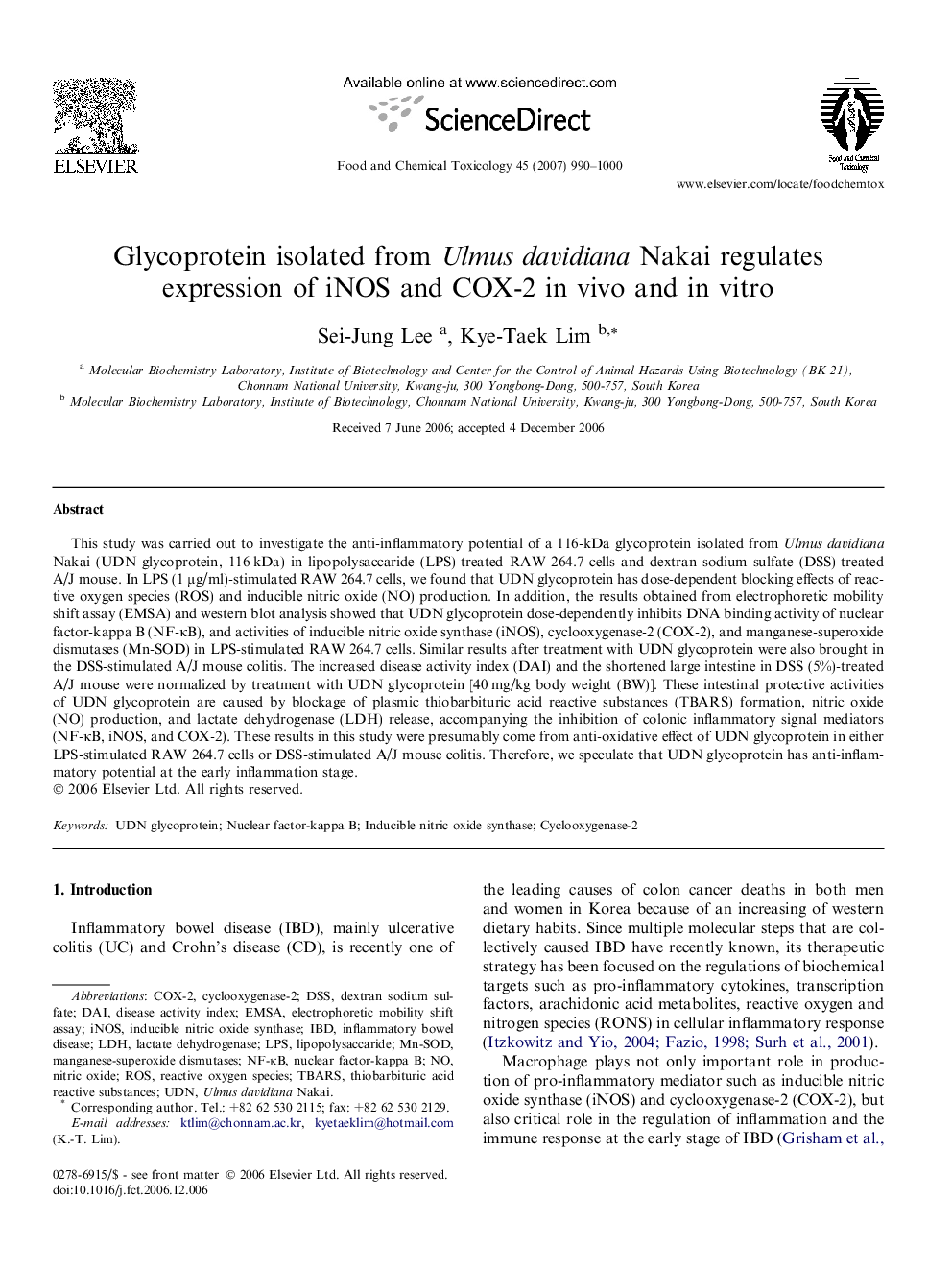| کد مقاله | کد نشریه | سال انتشار | مقاله انگلیسی | نسخه تمام متن |
|---|---|---|---|---|
| 2588263 | 1130959 | 2007 | 11 صفحه PDF | دانلود رایگان |

This study was carried out to investigate the anti-inflammatory potential of a 116-kDa glycoprotein isolated from Ulmus davidiana Nakai (UDN glycoprotein, 116 kDa) in lipopolysaccaride (LPS)-treated RAW 264.7 cells and dextran sodium sulfate (DSS)-treated A/J mouse. In LPS (1 μg/ml)-stimulated RAW 264.7 cells, we found that UDN glycoprotein has dose-dependent blocking effects of reactive oxygen species (ROS) and inducible nitric oxide (NO) production. In addition, the results obtained from electrophoretic mobility shift assay (EMSA) and western blot analysis showed that UDN glycoprotein dose-dependently inhibits DNA binding activity of nuclear factor-kappa B (NF-κB), and activities of inducible nitric oxide synthase (iNOS), cyclooxygenase-2 (COX-2), and manganese-superoxide dismutases (Mn-SOD) in LPS-stimulated RAW 264.7 cells. Similar results after treatment with UDN glycoprotein were also brought in the DSS-stimulated A/J mouse colitis. The increased disease activity index (DAI) and the shortened large intestine in DSS (5%)-treated A/J mouse were normalized by treatment with UDN glycoprotein [40 mg/kg body weight (BW)]. These intestinal protective activities of UDN glycoprotein are caused by blockage of plasmic thiobarbituric acid reactive substances (TBARS) formation, nitric oxide (NO) production, and lactate dehydrogenase (LDH) release, accompanying the inhibition of colonic inflammatory signal mediators (NF-κB, iNOS, and COX-2). These results in this study were presumably come from anti-oxidative effect of UDN glycoprotein in either LPS-stimulated RAW 264.7 cells or DSS-stimulated A/J mouse colitis. Therefore, we speculate that UDN glycoprotein has anti-inflammatory potential at the early inflammation stage.
Journal: Food and Chemical Toxicology - Volume 45, Issue 6, June 2007, Pages 990–1000